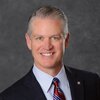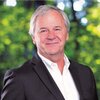
Leaders from six independent equipment finance companies joined Monitor for a roundtable discussion on one question: What does it mean to be an independent? They discuss the innovative nature of these entrepreneurs, their ability to specialize and their freedom when it comes to structuring deals and accessing capital.
When I met with the guest editors of this issue, we decided to do something different for our independent’s roundtable this year. We asked several leaders from top private independent companies one question: What does it mean to be an independent?
Ability to Innovate

A few panelists pointed to the independent’s ability to innovate. “An influential characteristic of most independent finance companies is the strength of the entrepreneurial spirit that runs through the company,” says Richard Baccaro, chief sales and marketing officer of Ascentium Capital. “This trait brings innovating ideas — identifying the changing needs of the clients it serves and filling that void quickly. Often this entrepreneurial environment is conducive to creating market disrupters — companies that develop a financial product, service or process which displaces current market leaders.”
Kyin Lok, CEO of Dext Capital, agrees: “Innovation is a necessity, not a luxury for independent finance companies. We find ways to better serve our customers and provide customers real value for the few extra basis points that they may pay to a non-bank lender. Gone are the days where independents can be successful by having a short-term focus and not valuing transparency in their dealings with a customer. The best independents are earning every penny.”

“Independence is a key factor in Stonebriar’s success, allowing for the flexibility to be nimble and innovative without the restraints under which regulated institutions operate,” says Dave Fate, president and CEO of Stonebriar Commercial Finance. “Independence requires the use of innovation, creativity, technology and strategic partner relationships which enables Stonebriar to operate very efficiently.”
Baccaro says independents are often the earliest adapters of new technology. “This creates immediate value including increased speed in decision making, enhanced flexibility to customize finance programs and the agility to respond to on-going changes in the market, economy or even client expectations,” he says. “These entrepreneurial aspects translate to strong growth and success.”

Inevitably, the success makes independents a prime target for larger acquiring entities, as recently demonstrated by Region Bank’s acquisition of Ascentium Capital. “This tends to make independents attractive to companies that want to expand their footprint in equipment financing,” Baccaro says. “So being an independent is also often a steppingstone to other opportunities.”

Lok points out that although larger financial institutions may have deeper pockets, adapting to the newest technology will cost them more. “It costs them many times what a company like Dext would require for innovation due to the legacy of their old systems and bureaucracy that hogs down innovation,” he says. “Less than 10 years ago, the industry was largely reliant on peer-to-peer phone and email references and comparable credit to make credit decisions. Today, data is abundant and can be mined through data science to make better, faster decisions. Dext aspires to make sense of complex data to make better, faster decisions and offer the data back to the customer or partner in a form that can easily be consumed, thereby helping them to improve their business.”
Serving Unique Niches
Mike Rooney, CEO of Verdant Commercial Capital, says trying to categorize all independents into one bucket is a mistake. “What’s interesting about independents is just how unique our businesses are,” he says. “Some independents focus on large-ticket transactions starting at $5 million dollars and go up from there. Others focus on micro-ticket financing, averaging less than $50,000 per transaction. Another niche for independents is marketing directly to high credit quality end-users, and some will even further segment that focus into FMV structures alone.”

Liberty Commercial Finance President and Chief Investment Officer Eric Freeman says independents have the unique ability to work with lessees and borrowers who “actually need” financing services. “The bulk of our business comes from clients who have been turned down by banks because of a combination of their credit profile, collateral type, industry or exposure,” he says. “As an independent, we’re able to really listen to the story and find a solution versus just trying to fit our lessees into a box.”
With the flexibility to cater to every type of customer comes the ability to specialize. “Most independents find our niches and become extremely good at operating them with a specialized set of skills and experience and backed by our niche-focused support teams,” Rooney says. “The ability among independent equipment finance companies to set our own strategy and execute it is liberating and allows our teams to really understand our respective customers and what matters to them.”
“Operating as an independent has enabled Crossroads to focus exclusively on the transportation industry, and quickly develop products, digital capabilities and underwriting standards valued by our vendor partners,” says Howard Shiebler, president of Crossroads Equipment Lease & Finance.
“In the end, I think that collectively independents do business with many of the same customers that the big financial institutions address as well, even though we may get there in very different ways,” Rooney adds. “Frankly, however, having personally come from a big institution, I know that we are having a lot more fun doing it!”
Capital Capabilities
Independents also have unique capabilities when it comes to capital. “We have clients going on schedule 30+ with over $60 million financed over the last two years and no end in sight,” Freeman says. “With our hold some, sell some strategy, there is no real limit to how much we can lend to a single obligor.”
“Verdant Commercial Capital operates as a vendor-driven independent which allows us to access capital across the risk/price spectrum,” Rooney says. “This access translates into delivering very attractive credit approval ratios to our vendors, without having to sacrifice competitive pricing or control of our vendor’s customer relationships since we also retain the portfolio servicing. Verdant’s mission is to help our vendors ‘sell more stuff’ as quickly and efficiently as possible. We work with our vendors to secure their first sale with each customer, as well as throughout the customer contract life cycle. This ‘life cycle management’ not only helps our vendors to maintain ancillary service or maintenance revenue streams, but ultimately helps them close additional equipment sales to those same customers.”
“When GE Capital and other independents exited the market approximately five years ago, it created a significant void in the marketplace,” Fate says. “Without reliable independent sources of capital, a large sector of the market was left without viable options when the more highly constrained institutions tightened their credit parameters. Since inception five years ago, we have funded over $4.5 billion in transactions with no credit losses to date. Our success is due in large part to operating as a privately-owned independent. This allows Stonebriar to structure and price to the perceived risk and underwrite to the real risk.”
Freeman points out the recession-proof nature of independents. “The first full year after the great recession in 2009 was the best earning year of my career up to that point because all the banks stopped lending, so we were able to go up market and provide capital to companies who typically wouldn’t return our phone calls.”
Finally, without the backing of a bank or manufacturing parent, or the scrutiny of shareholders, independents face no restraints when it comes to earnings. “There is no cap on how much you can earn,” Freeman says, noting that he is unsure if this is the policy at all companies, but all of the independents he’s worked for have had “no cap on compensation.”
With a benefit like that, paired with the unique capital capabilities and the ability to innovate and specialize, these entrepreneurs possess a level of freedom that is unmatched in the industry.